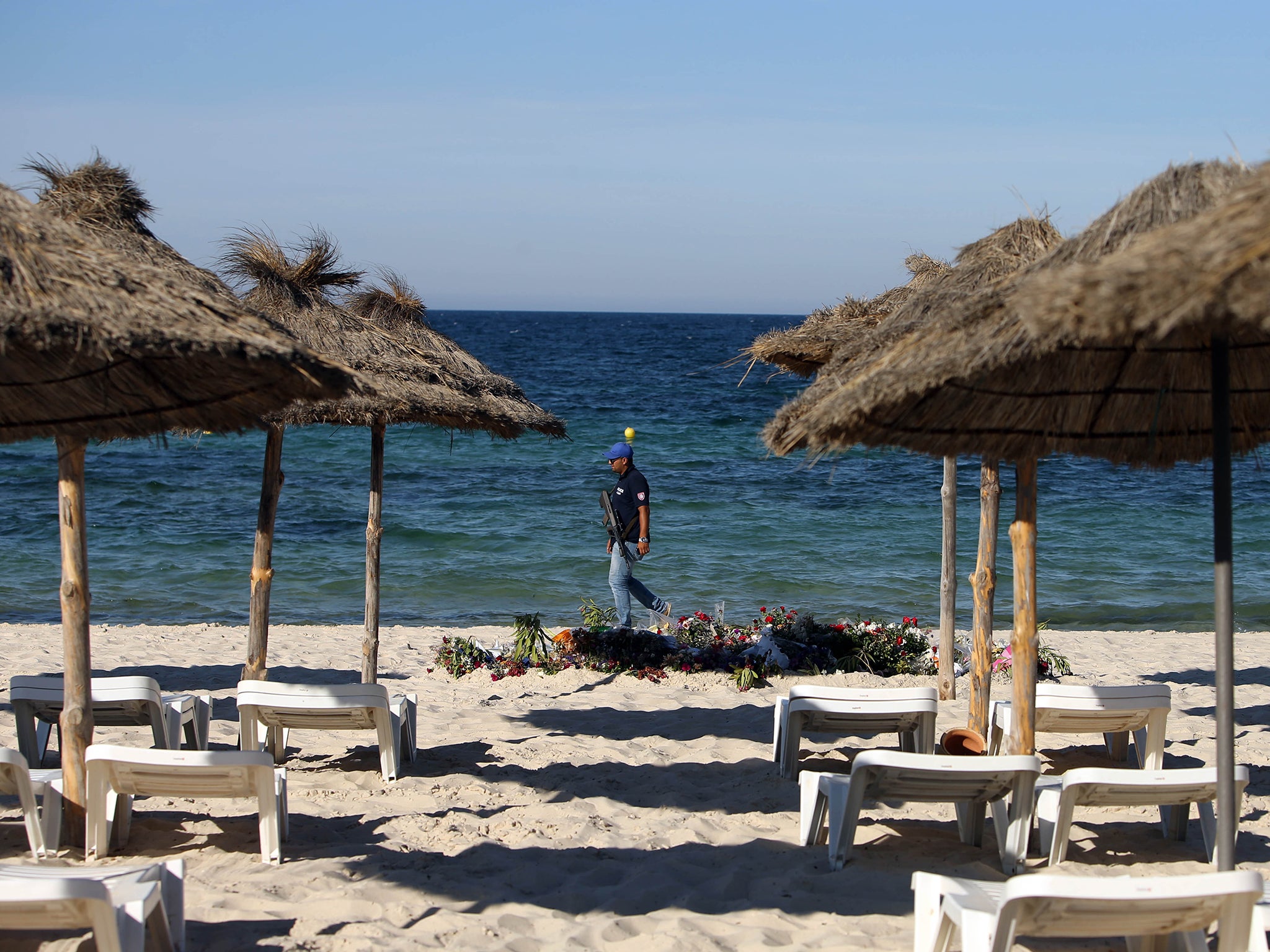Tunisian policemen charged for 'poor reactivity' over Sousse massacre that left 39 dead
The police's delay in arriving at the scene was because the officers had to race back to get bulletproof vests and guns

Your support helps us to tell the story
From reproductive rights to climate change to Big Tech, The Independent is on the ground when the story is developing. Whether it's investigating the financials of Elon Musk's pro-Trump PAC or producing our latest documentary, 'The A Word', which shines a light on the American women fighting for reproductive rights, we know how important it is to parse out the facts from the messaging.
At such a critical moment in US history, we need reporters on the ground. Your donation allows us to keep sending journalists to speak to both sides of the story.
The Independent is trusted by Americans across the entire political spectrum. And unlike many other quality news outlets, we choose not to lock Americans out of our reporting and analysis with paywalls. We believe quality journalism should be available to everyone, paid for by those who can afford it.
Your support makes all the difference.Tunisian authorities have charged six police officers over the beach massacre last summer in which 39 people were killed.
Those detained include the chief of the brigade responsible for protecting tourists in the resort town of Sousse, and five officers from the same unit. They were charged with “poor reactivity”.
There have previously been dozens of alleged militants arrested in connection with the attack, but the Tunisian authorities have not offered any more details about the events surrounding the massacre in June last year.
In the days following the murders, troubling questions were raised, including in reports by The Independent, about why the police took so long to arrive at the scene – nearly 40 minutes. Despite the resort-filled beachfront being one of the largest tourist destinations in the country, police were seemingly unprepared for the attack.
Groups of local youths tried to protect the fleeing Western tourists, until police shot gunman Seifedinne Rezgui as he left the scene.
One of those arrested was the man who had shot Rezgui, an act for which he had previously been honoured by President Beji Caid Essebsi. The policeman’s brother said in an interview yesterday that the arrests had come as a surprise. “In the beginning they congratulated them for a job well done,” he said.
He said his brother had been questioned three times by investigators before the arrests were made.
The delay in arriving at the scenes, according to the brother, was because the officers had to race back to get bulletproof vests and guns.
The police trade union in Sousse held a sit-in in protest over the arrests of their colleagues on Thursday. Police defenders say they are under equipped, underpaid, and lack proper training and experiencing to deal with the growing risk from armed militants.
Until 2012, Tunisia had little history of such attacks.
Thirty British holidaymakers were among those murdered in the massacre, and a British inquest is due later this year or early 2017.
Join our commenting forum
Join thought-provoking conversations, follow other Independent readers and see their replies
Comments